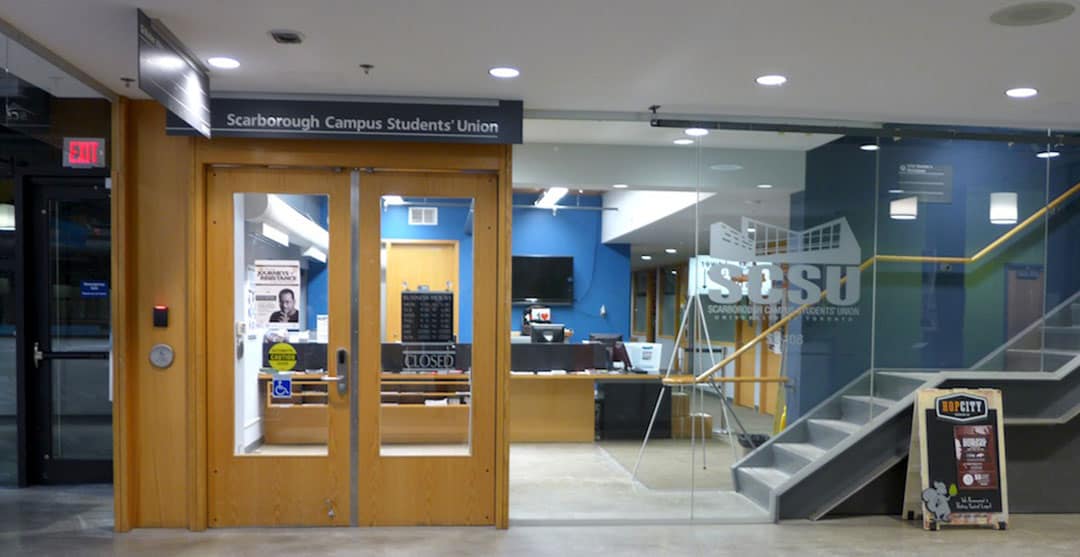The Scarborough Campus Students’ Union (SCSU) at UTSC has launched a new petition, the Academic Advocacy petition, intended to fight for the academic rights of students and to make education more accessible. SCSU Vice-President Academics and University Affairs Christina Arayata explained the rights the SCSU is currently campaigning for in their Academic Advocacy campaign include the right to refuse to use Turnitin and self-declared sick notes.
Arayata said the main objective of the campaign is to make students more aware of their rights and to help them take more control over their education. Arayata has been working on the campaign’s foundations since summer.
Recently, the SCSU put up large banners in the Market Place, UTSC’s communal cafeteria-style area, containing several petition highlights.
The right to refuse Turnitin
According to Arayata, many students are not aware that they have the right to refuse to submit their assignments through Turnitin, an online academic plagiarism checker. This right is mentioned in the university’s Conditions of Use of Turnitin.
A student can refuse to use the service as long as they inform their professor in the early days of class, preferably the first day, and the professor will have to find another way to check assignments for that student.
Arayata thinks that, though professors do mention this in syllabi, students miss it because of the heavy jargon; the SCSU wants more accessible language in syllabi that describe student rights.
Self-declared sick notes
Getting sick notes from doctors can be a lengthy and an expensive process, said Arayata. She added that the Health and Wellness Centre is already facing backups with appointments, which concerns students because they lose marks each day work is late.
The SCSU prefers if every student were able to use one self-declared sick note per semester for every course by going to the registrar and filling out a form. The university would need to create a system to facilitate this.
The SCSU is also campaigning for the right to privacy of grades, removing the laptop ban in some lectures, a credit-no credit extension until the final day of the study break, and a five per cent cap on late penalties.
“Even if this may not affect you now, it might affect you sometime in the future,” concluded Arayata.


